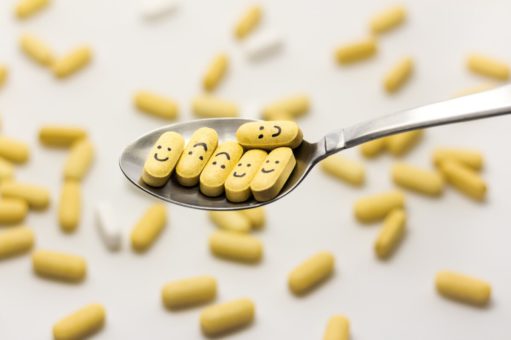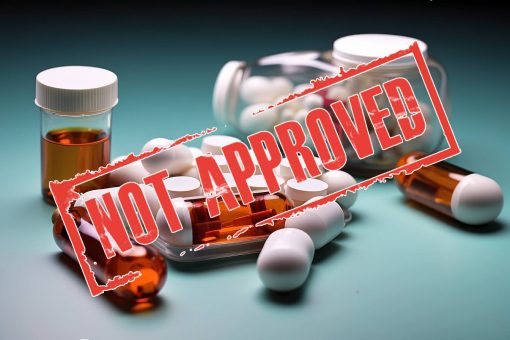Beware of Natural Supplements for Increased Sexual Desire and Weight Loss

Many consumers believe that nutritional supplements are natural and therefore safe. In fact, the Council for Responsible Nutrition reported in 2017 that 87% of U.S. consumers believe that nutritional supplements such as vitamins, minerals, herbs, plant foods, oils, microbiome bacteria, and amino acids are safe and effective and effective, according to the report. Unfortunately, their confidence may be misplaced when it comes to supplements for male sexual dysfunction and weight loss.
According to the Food and Drug Administration, 776 supplement products by 146 different manufacturers sold between 2007 and 2016 contained synthetic/prescription drugs. Most of these products were marketed for only two symptoms: sexual enhancement (45.5%) or weight loss (40.9%). Most recently, on November 30, 2018, the FDA advised consumers not to purchase the product Willy Go Wild, which is sold online and in some retail stores, because it contains a hidden prescription drug.
Why is this a problem?
As a pharmacist and researcher of nutritional supplements, I am concerned about these prescription drugs being hidden in dietary supplements. This puts patients at risk and leads people to attribute the efficacy and harm they experience to the herb rather than the real culprit, the added drug. This makes it difficult for doctors and pharmacists to determine which patients should use these natural remedies and which should avoid their use.
Dangerous sex-enhancing drugs.
It is considered cheating for pharmacists to fill prescriptions for erectile dysfunction (ED) drugs such as Viagra, Levitra, and Cialis if the patient is taking nitroglycerin pills or sprays or nitrates such as isosorbide mononitrate. These nitrates are often used to treat chest pain and heart failure, and when combined with ED drugs, as the FDA has announced that the makers of Willie Go Wild have done, can cause a sudden drop in a patient’s blood pressure. This can result in hospitalization or even death.
Some patients taking nitrate-based drugs rely on so-called natural foods because they cannot safely take ED medications. If they had purchased one of the 353 contaminated products, they would still have obtained the same active ingredients.
In addition, prescription erectile dysfunction drugs can cause priapism, an emergency situation that can irreparably damage the penis. The higher the dose, the higher the risk. In other words, suppose you tried to enhance your prescription erectile dysfunction medication with a herbal remedy, only to find that you were instead taking the active ingredient in the prescription drug. There have been cases of congenital testicular inflammation caused by herbal medicines for sexual dysfunction.
ED medications and antidepressants
Some other dietary supplements for male enhancement have a drug called daptoxetine added; the FDA has not approved this for any reason, including sexual dysfunction. People taking other serotonin-enhancing drugs for depression or bowel problems are likely to develop a condition called serotonin syndrome if they are inadvertently exposed to this undisclosed drug. Serotonin syndrome is a life-threatening problem that can include high body temperature, muscle rigidity, seizures, and kidney damage.
The appetite suppressant sibutramine was removed from the U.S. market by the FDA in 2010 because its use increased the risk of heart attack and stroke. However, 269 supplement products claiming weight loss contained sibutramine, as well as the stimulants ephedrine and fenfluramine.
Ephedrine, a stimulant, was banned in the U.S. because it also increases cardiovascular risk. Fenfluramine, an amphetamine derivative, was used with phentermine in the popular “fen-phen” diet, but was banned after numerous cases of pulmonary hypertension, heart valve damage, and heart failure occurred.
In addition, other dietary supplements intended for weight loss contained the laxative phenolphthalein and prescription diuretics. Phenolphthalein is no longer used as a laxative in the U.S. because it can cause cancer and harm the fetus. Laxatives and diuretics only reduce weight through diarrhea and water loss. They do not reduce fat. They can cause dangerously low blood pressure and low blood potassium levels.
A study published in the New England Journal of Medicine in 2015 estimated that diet supplements led to 23,000 emergency room visits and more than 2,000 hospitalizations annually. In addition, weight loss products and those associated with increased energy caused 72% of all supplement-related adverse events, including heart palpitations, chest pain, and increased heart rate. I suspect that the fact that these supplements are intentionally contaminated with synthetic drugs may explain some of these findings.
How can we protect ourselves?
The FDA does not approve dietary supplements; the Dietary Supplement Health and Education Act of 1994 (DSHEA) created a new category of dietary supplements. Any product containing natural ingredients intended to promote or maintain health, not to diagnose, cure, treat, or prevent disease, qualifies as a dietary supplement Under DSHEA, the FDA must prove risk to human health before removing these products from the U.S. market.
However, the FDA has an ongoing list of products on which synthetic or prescription drugs have been detected that it can check. If a product you buy is on that list, don’t use it.On November 20, 2018, two dietary supplements for pain and drug addiction were found to be contaminated with thianeptine, an antidepressant not approved by the FDA for use on the US market. But even if your product is not on that list, it is no guarantee that it is not contaminated; the FDA does not have the resources to check the tens of thousands of dietary supplements that line U.S. shelves.
Verification by an independent laboratory from the U.S. Pharmacopeia (USP) would assure you that the vitamins and herbs specified on the label are in the bottle and that the product has a low risk of microbial, heavy metal, or PCB contamination. Unfortunately, USP does not routinely test supplements for synthetic or prescription drugs.
ConsumerLab.com also does not typically test for prescription drug contamination during product verification. However, for sexual dysfunction drugs, ConsumerLab.com did test for prescription drug contamination.
According to the FDA, dietary supplements manufactured in Asia are likely to be contaminated and should be treated with caution. In addition, people of diverse ethnicities, non-English speakers, and the poor are more likely to encounter contaminated dietary supplements because they purchase these products at ethnic stores, flea markets, swap meets, or online. Buying from reputable brands in reputable stores and websites may reduce the risk. Finally, do not believe claims of miraculous efficacy, especially if the only data supporting them are testimonials.









